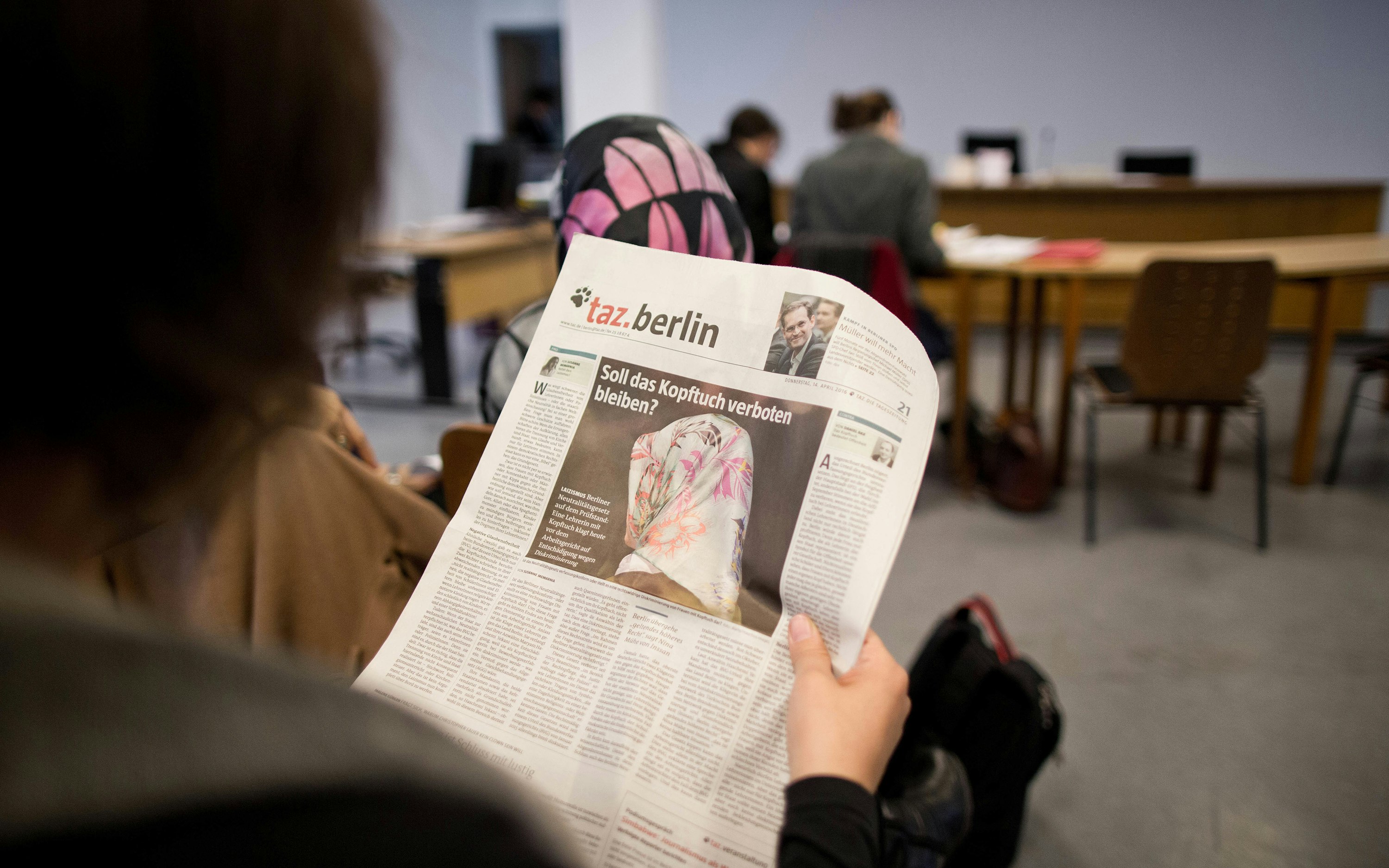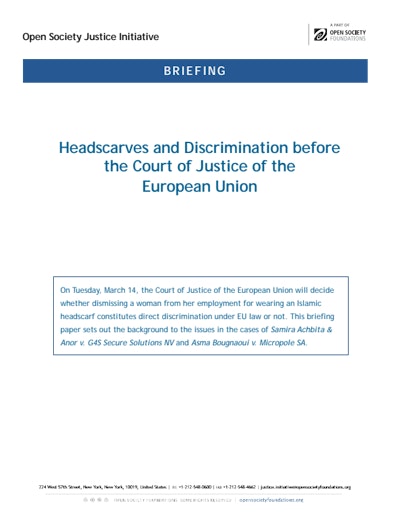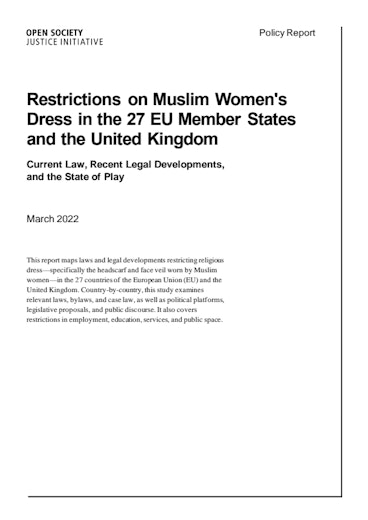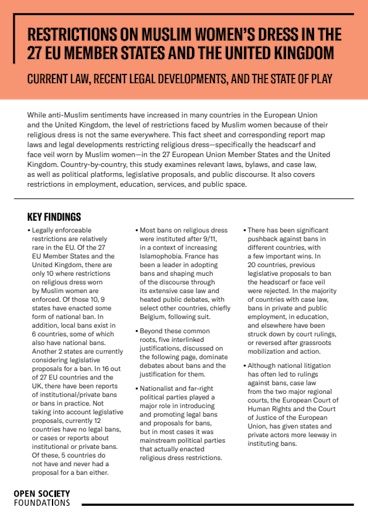Restrictions on Muslim Women's Dress in the 27 EU Member States and the United Kingdom
Increasing Islamophobia in Europe has been a critical driver of the rise in bans on headscarves, face veils, and other items of clothing worn by Muslim women. Religious dress bans exclude Muslim women and girls from workplaces, educational and government institutions, and public spaces, standing in the way of pluralism and equality, fundamental values safeguarded in multiple European treaties.
This policy brief is the result of a project initiated in 2018 by the Justice Initiative to close a critical research gap on bans on Muslim women’s dress in Europe and expose the Islamophobic context in which religious dress bans arise to target Muslim women. The goal of this research was to support campaigns and strategic litigation challenging such bans. The current brief examines relevant laws, bylaws, and case law in each EU member state and the UK, as well as political platforms, legislative proposals, private bans, and public discourse. The 2022 update is the result of a collaboration with the Berkeley Center on Comparative Equality and Anti-Discrimination Law.
The brief highlights that persistent legal actions and campaigning from Muslim women has led to bans in various places being successfully challenged and revoked. However, as shown also in the corresponding factsheet, more bans have been introduced in various countries over the past few years, furthering the exclusion of Muslim women. Most notably, despite repeated referrals from national courts challenging its views, the Court of Justice of the European Union continues to rule that private companies’ religious dress bans are justified in the name of neutrality—raising the need to persist with strategic litigation.
Case Watch: German Court Sides with Muslim Women Teachers Over Discriminatory Headscarf Ban
A recent judgement by Germany's top labor court is expected to end a decades old court battle over headscarf bans for teachers.

EU Top Court Fails to Guarantee Muslim Women’s Right to Wear a Headscarf at Work
The Court of Justice of the European Union has ruled that it is not direct discrimination on grounds of religion for an employer to bar workers from wearing religious clothing.
Headscarves and Discrimination before the Court of Justice of the European Union
The EU's top court will rule on whether an employer can refuse to allow a Muslim woman to wear a headscarf at her place of work.


